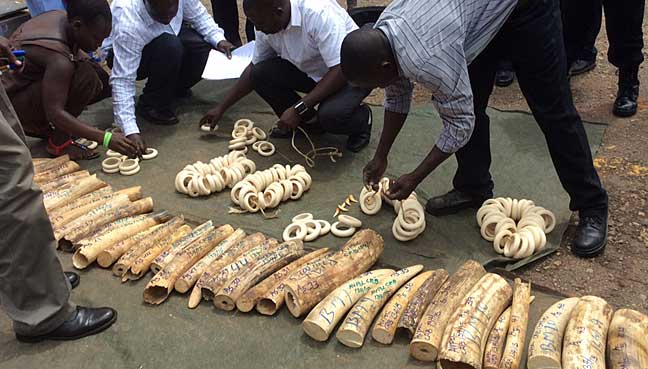China on Thursday rejected allegations that two of its diplomats working in Uganda were involved in the trafficking of ivory from the African country.
The Chinese embassy officials are suspected of helping move ivory from the Democratic Republic of Congo, the Central African Republic and South Sudan, using Uganda as a transit point, Ali Munira, a spokeswoman for Uganda’s top anti-corruption body, told AFP this week.
Ugandan President Yoweri Museveni has ordered a probe into possible collusion between the country’s wildlife agency and the diplomats, Munira said.
But China dismissed reports of the allegations as “totally unfounded”.
“We have rigorous regulations and laws on governmental officials, embassy members, and visiting groups to forbid them from buying or engaging in (smuggling) activities,” foreign ministry spokeswoman Hua Chunying told reporters.
But she added: “We will punish them if they are found to be engaged in such activities.”
Poaching has risen sharply in recent years across Africa, fuelled by rising demand in Asia for ivory and rhino horn, coveted as traditional medicine and a status symbol. Uganda is a major transit country for the illegal trade.
China announced in December that it would ban all ivory trade and processing by the end of 2017, a move hailed by conservationists as a “game changer” for African elephants.
More than 35,000 elephants are killed across Africa every year for their tusks.
The Convention on International Trade in Endangered Species of Wild Fauna and Flora (CITES) banned the ivory trade in 1989.
But China permits the resale of ivory bought before the 1989 ban — and also has a stockpile purchased with CITES approval in 2008, which it releases for sale with certification.
-AFP





